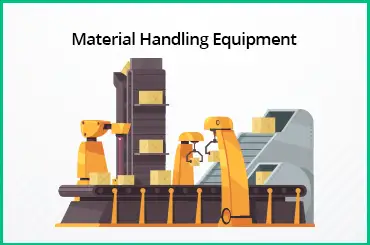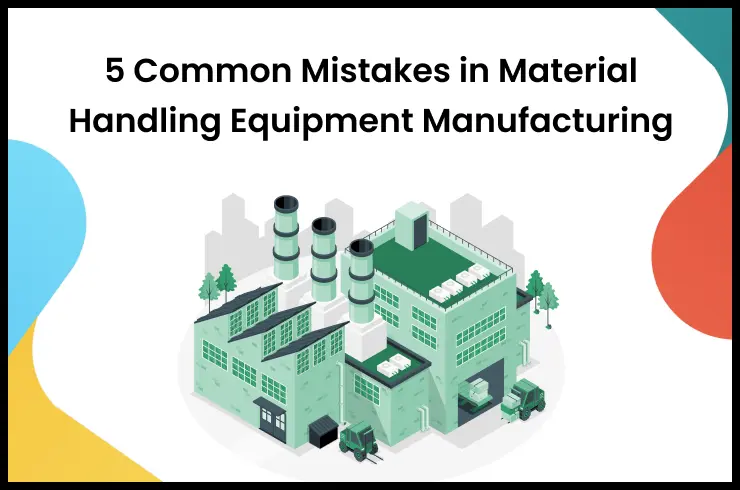Manufacturing businesses are always looking for ways to constantly improve productivity. Large-scale businesses have a lot of freedom there, but SMEs have small budgets and specific requirements. Information and communication technology (ICT) is a cost-effective solution that increases the productivity of SMEs.
ICT in manufacturing industry is helpful in improving communication, storing data, sharing information, and speeding up tasks. It can help small businesses in improving their product quality and compete with well-established companies in the market. In this blog post, we will understand ICT and look at some case studies to analyze the use of ICT in manufacturing industries.
Understanding ICT In Manufacturing
ICT is the short form for information and communication technology. It includes computers, the Internet, software, Internet of Things (IoT) devices, telecommunication devices, etc. ICT in manufacturing is the implementation of tools or software to improve communications and operational efficiency.
The use of ICT in manufacturing industries can help you collect relevant information, digitize your business, and make better decisions in small businesses. You can use ICT to analyze customer orders and market trends and predict future demands. You can use inventory management software to avoid inventory shrinkage and overstocking in manufacturing industries. You can use production planning software to make your plans according to your production targets and customer orders.
The application of ICT in manufacturing businesses can improve inventory management, control over product quality, and customer satisfaction. ICT also allows you to communicate with your suppliers and team members from different locations. You can use different tools to utilize your workforce, materials, and machines for maximum output.
Positive Impact Of ICT In Manufacturing
ICT can help you speed up various tasks, reducing human errors, and improving overall operational performance. When you start using tools and software to fulfill your specific requirements, you can immediately notice the positive impact of ICT in manufacturing industry within different departments.
When you train your employees to use various tools/ software for maximum operations, you can automate many of your operational tasks, especially repetitive tasks. The software allows you to access your business data from different locations. This helps you make quick and informed decisions and succeed in your business for the long term.
Advantages Of ICT In The Manufacturing Industry
There are many advantages of ICT in manufacturing industry based on your unique requirements. Here are the more common advantages that you can experience:
1. Improved Communication
It improves communication within different departments and suppliers. The main advantage is that you can communicate with your teams from different locations. It helps you manage and modify tasks in real-time. For example, in the case of orders, teams from the production line and demand management can communicate with inventory departments to make sure that the required raw materials are available.
2. Increased Efficiency
It increases operational efficiency by optimizing processes. It helps you save time in repetitive tasks and reduce human errors. ICT also helps you identify potential issues that can cause problems in your production and order management. It improves your purchasing and production activities to increase operational efficiency.
3. Optimized Inventory
It helps you optimize your inventory management and prevent overstocking and out-of-stock situations. When you use specific tools like inventory management software, you can have sufficient stock of valuable raw materials to fulfill production targets. It also helps you reorder stocks at the right time to avoid disruptions and holding costs.
4. Reduced Disruptions
It helps you reduce supply chain disruptions by monitoring and analyzing the performance of your suppliers. It also helps you track your purchase orders in real time. It helps you find bottlenecks so that you can manage them before they cause any disruption in your production process. ICT also allows you to modify your strategies in real time to avoid disruptions and improve workflow.
5. Quality Standards
It allows you to monitor your manufacturing process in real time to have better control over quality. You can also use ICT to check the quality of products automatically at regular intervals. When you make high-quality products in your manufacturing industry, you can impress your customers and get more orders.
6. Data And Analysis
It allows you to store and analyze previous data, whether they are related to procurement, production, or sales. When you analyze historical data with advanced analytical tools, you can create accurate demand forecasts and production schedules. It also helps you make informed decisions and utilize your resources for maximum outputs.
7. Flexibility To Changes
It provides flexibility to adapt to changes in market trends or customer orders. It helps you increase or decrease your production rate to improve your demand management. It can help you fulfill rush orders, improve customer satisfaction, and increase profits.
8. Reduced Wastage
ICT helps you reduce human errors and use your resources like machines, materials, and workers for maximum efficiency. This helps you reduce waste and overall costs like inventory costs and production costs. With software, you can optimize your operations to achieve higher production rates without disruptions in manufacturing lead times.
Case Studies: ICT In Manufacturing Examples
Here are some ICT in manufacturing examples to understand its importance in a better way. It will help you learn how the implementation of ICT can improve the productivity of your small manufacturing industry.
Taking an example of Tata Steel Limited, a leading steel manufacturing company in India to figure out how the implementation of ICT helped them. Before the implementation of ICT, Tata Steel Limited faced problems with real-time monitoring, resource utilization, and product quality.
The company implemented advanced technology to manage problems and increase efficiency. Implementing digital twin technology helped the company create virtual replicas of physical assets and processes involved in manufacturing. This allowed them to monitor processes in real-time and improve them according to demands. Tata Steel Limited also implemented the Industrial Internet of Things (IIoT), ERP systems, and Blockchain technology.
IoT devices were used to collect data such as temperatures, pressure, and machine performance in the different stages of manufacturing. It helped the company reduce unexpected breakdowns and improve proactive maintenance. ERP systems were used to manage procurement, production, and sales for the company. This improved coordination between different departments, inventory management, and product quality.
Blockchain technology was used to record transactions and increase transparency in supply chain activities. It helped the company improve relationships with suppliers and customers as well.
A study was conducted to understand how ICT implementation and the use of different ICT types affect the performance of manufacturing SMEs. Researchers used two theories: the economic theory of production and the resource-based view (RBV).
- The economic theory of production focuses on investments in tools and software and profits from them. Therefore, the economic theory looked at ICT investments, performance, and productivity, but the results were mixed.
- The resource-based view suggests that a company’s performance depends on its resources and capacity. The theory shows that a company can benefit more if it uses tools like production planning and inventory management software and trains its employees accordingly.
The type of technology a company uses also matters in improving the performance and productivity of small manufacturing industries. The findings of the study suggest that ICT improves internal and external communication (with in-house teams and suppliers). It also suggests that ICT improves operational efficiency and final performances directly or through communication.
ICT In Manufacturing Industry And Small Business
When you use ICT in manufacturing industry and small business, you can bring many positive changes to your business. Small manufacturing businesses have to manage fewer operations, but they have very specific needs. This makes it difficult to find the solutions that they can implement. ICT allows you to develop specific strategies to manage potential blocks and other issues. It helps you reduce costs and speed up tasks according to your unique requirements. It also helps you maximize your profits and expand your business with the right strategies.
ICT In Your Manufacturing Business With TranZact
Today, there are many types of ICT software for each component of your manufacturing business. However, it could be difficult to get software for each function and manage them altogether. You do not have to manage each task separately if the software has integration options. Thus, you should look for a tool that can handle every operational task of a SME manufacturer.
TranZact is specially developed for Indian manufacturers of small and medium-sized enterprises (SMEs). It comes with different modules to fulfill the needs of ICT in manufacturing industry from enquiry to dispatch. It allows you to communicate with your in-house teams and suppliers from different locations. It helps you in demand forecasting, production planning, and demand management. It helps you improve your relationship with your customers and suppliers.
Implement TranZact in your manufacturing industry today to streamline operations and compete with big companies to increase profits.
FAQs
1. What is ICT in manufacturing?
The full form of ICT is Information and Communication Technology. ICT in manufacturing industry is the use of tools/software to improve communication within in-house teams and suppliers for operational efficiency.
2. What is the impact of ICT on manufacturing industry?
The impact of ICT on the manufacturing industry can improve communication, quality control, and overall productivity.
3. What is the use of ICT in small businesses?
The uses of ICT in small businesses are improving communication with in-house teams, customers, and suppliers, analyzing data for better decision-making, and enhancing operational efficiency.
4. How is ICT used in business and manufacturing?
ICT is used in business and manufacturing for inventory management, quality control, data analysis, etc.
5. What is the biggest impact of ICT?
The biggest impact of ICT is the ability to provide the required information for better decision-making and improve connectivity to maximize business productivity.
6. What are the 5 functions of ICT?
The five functions of ICT are as follows:
- Improving communication
- Data storage and analysis
- Information sharing
- Automating tasks5. Security assurance















